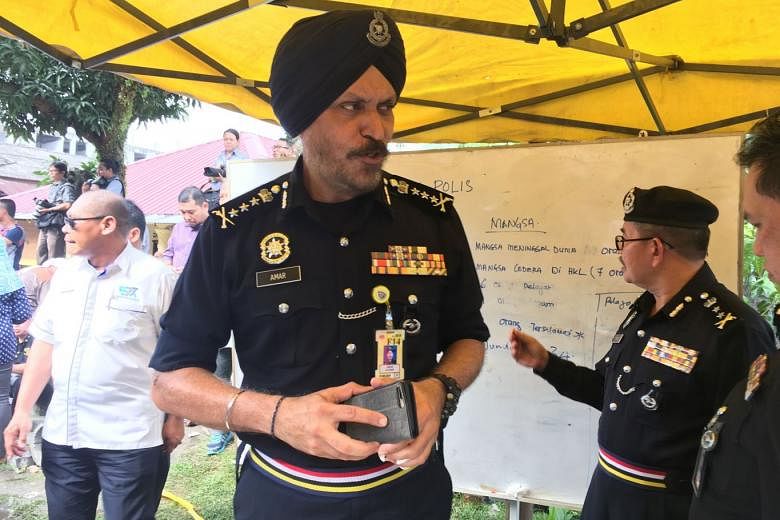KUALA LUMPUR • Malaysian diving plunged to a low yesterday following the arrest of a national coach for the alleged rape of a diver and reports that a SEA Games diving champion failed a dope test at this year's biennial event.
Kuala Lumpur police chief Amar Singh Ishar Singh said a 35-year-old coach from China was detained by a police team yesterday after receiving a report from the victim.
She is believed to be from the national back-up squad.
Commissioner of Police Amar Singh said the alleged rape took place on Sept 26 at the National Sports Complex in Bukit Jalil, reported the New Straits Times (NST) yesterday.
"The victim lodged a police report on Sunday, fearing for her safety," Amar Singh said in a statement, adding that the suspect would be remanded for five days to facilitate investigations.
According to NST sources, the man is married to a Malaysian and is in his 30s.
The newspaper also reported that he has been working in Malaysia for more than five years and was part of the country's contingent at the 2012 London Olympics.
The last time Malaysian sport was rocked by a major allegation of sexual abuse was more than two decades ago, reported NST.
Earlier yesterday, reports surfaced of a Malaysian female diving gold medallist being among three athletes who failed doping tests at the SEA Games.
SEA Games Federation (SEAGF) medical and anti-doping committee head, Dr S. S. Cheema, said the adverse analytical finding (AAF) carried out by the World Anti-Doping Agency-accredited lab in New Delhi, India, found the presence of a banned substance in the 'A' sample of all three athletes.
"We have received the AAF reports from the lab in New Delhi about a fortnight ago which confirmed the presence of the banned substance from three athletes who took part in the KL 2017.
"However, we cannot jump to a conclusion by saying all three are guilty until a thorough investigation is carried out by the respective parties," he said yesterday.
Some 799 urine samples and 32 blood samples were collected from athletes who competed at the Games.
Dr Cheema, who is also the Olympic Council of Malaysia (OCM) medical and anti-doping committee chairman, declined to reveal the names and the countries of the athletes involved.
He added that all these athletes will be given a chance to challenge the 'B' sample and appear before the SEAGF hearing committee.
The NST reported that a Malaysian female diving gold medallist was one of the alleged doping offenders, while The Star reported that at least one of the trio is a "foreign" athlete.
Cheong Jun Hoong, the first Malaysian to win a diving world title; two-time Olympic medallist Pandelela Rinong; Ng Yan Yee; Leong Mun Yee; Traisy Vivien Tukiet; Nur Dhabitah Sabri; and Jasmine Lai were the seven female Malaysian divers to win gold at the Games.
Malaysia finished top of the standings at the 29th SEA Games with a national record of 145 gold medals. Malaysian divers swept all 13 golds on offer, after winning all eight events two years ago in the Singapore edition.
"SEAGF will revoke the medal if any of the athletes are medal winners and the international federation of their respective sport will decide on what course of action to be taken if any of them failed the dope test," Dr Cheema said.
BERNAMA

